Live Reporting
- The number of people who have died in Spain has gone up to 1,326 in total - a rise of 324 in one day, according to the health ministry. Yesterday's rise was 235.
- We brought you the news earler (see 10:04 post), that mainland China is experiencing a spike in imported cases.Here is some of the latest news we're getting from elsewhere in Asia:
- The Philippines has registered its highest single-day increase in cases - 77 - taking the total to 307. Only 1,269 people have been tested so alarm bells are ringing
- Indonesia - a country of 270 million - now has 450 cases and 38 deaths. A state of emergency has been declared in the capital, Jakarta - a mega-city
- There are fears in India that infections could surge as hundreds of thousands of migrants workers lose their jobs and return from cities to villages. At least 230 cases have been recorded in India
- South Korea is advising people to stop socialising for 15 days after 147 new infections were reported on Saturday. The country hit a peak of 909 new cases in a day on 29 February
- Authorities in Bangkok, the Thai capital, are closing shopping centres, markets and most shops - bringing normal life in the city to a halt
- Singapore has registered the first two deaths there
- Canadian Rob McKenzie accidentally went on what he now calls a “coronavirus tour” – he travelled through Italy, Hong Kong and Malaysia over two and a half weeks, and saw a big contrast in the response to coronavirus.He was visiting his in-laws in Canepina in late February - when the first cases were reported in Italy. At the time, public messaging around coronavirus was unclear, and “Italians have a profound distrust of politicians”, which meant most dismissed it as "a bunch of nonsense and annoyance”.He then went to Hong Kong to visit a sick friend – and was taken aback by the measures in place. An in-flight announcement warned passengers to be proactive, there was detailed screening at the airport, and the few people out in public wore masks.A week later, he flew to Kuala Lumpur. Malaysia had its first cases in late January – yet “very few people were wearing masks, the airport didn’t seem curious at all about where I’d been”, and he went to a temple where about “200 people shared lunch at a long table”. Since then, case numbers have shot up, and the government has ordered a two-week lockdown.He says his trip felt a bit like a “travelling across time… I think a lot of these countries are doing a similar journey, where the first stage is disbelief, doubt and annoyance, and the second stage is more shock and compliance.”
- The UK government is coming under further pressure to provide more financial support to the self-employed, after many face financial hardship due to the coronavirus.Some MPs say the chancellor's unprecedented plan to underwrite the wages of employees who face being laid off does nothing for freelancers, contractors and the self-employed.Former Conservative cabinet minister David Davis said the economy could suffer a near "fatal seizure" if they are not protected.Speaking to us at the BBC, Mr Davis said: "Without this the whole of the British economy will have a seizure - almost a fatal seizure in economic terms."It is great for those who have got jobs but it does miss out a pretty important sector of the economy - namely the self-employed - and he (Mr Sunak) is going to have to find a way of replicating this for the self-employed as well."His call was seconded by TUC general secretary Frances O'Grady who said the trade union movement would be "pushing really hard" on the issue.
- It's been around for decades to treat malaria but there has been lots of talk about whether chloroquine can help Covid-19 patients.President Trump said on Thursday that the US Food and Drug Administration (FDA) had approved the drug for use in treating the new coronavirus, but that's not true.It's an approved drug for malaria, lupus and rheumatoid arthritis, but that's it.But there is some hope. Some doctors say it has appeared to help Covid-19 patients, and lab studies show it seems to block the virus.However, and this is crucial, clinical trials are still under way.
- With the coronavirus spreading throughout the world, people are being asked to take part in social distancing or self-isolation. But what do these terms mean, and how do they differ?Social distancing means avoiding unnecessary contact with other people and spending less time in public places, where a lot of people are around.Everyone in the UK is now advised to follow self-distancing measures, especially the over-70s, pregnant women and adults normally eligible for a flu jab.When social distancing you must work from home where possible and avoid all unnecessary travel and public gatherings.You can go for a walk or run outdoors if you stay 2m (6ft) away from others, go to the shops to buy groceries, see family and friends if it's essential, walk your dog, and provide essential care for elderly residents and neighbours - if you have no symptoms.People that show coronavirus symptoms, or live with someone who is showing symptoms, have been asked to self-isolate.Self-isolating means staying at home and not leaving it, other than for exercise.This means you cannot go to work, school or public areas during this time and if possible, you should not go out even to buy food or other essentials.If you are unable to get supplies delivered, you should do what you can to limit social contact when you do leave the house.
- Negotiators in the US Congress have failed to reach agreement on details of a $1tn (£858bn) economic programme to support American households during the coronavirus pandemic.A midnight deadline set for the deal passed with the talks reportedly stuck on how best to distribute financial support and how much it should be.Negotiations are expected to resume later on Saturday.US stock markets recorded their biggest weekly loss for a decade when they closed on Friday – they’re down 17% since Monday
- The director of the Institute of Fiscal Studies (IFS) has warned that the cost of the government's coronavirus job retention scheme is simply "unknowable".Paul Johnson said if the support was claimed for 10% of employees it could cost the Government £10 billion over three months.In a move previously considered unthinkable for a Conservative government, employers will be able to apply to HM Revenue and Customs to cover 80% of the wages of staff they keep on up to £2,500 a month.Mr Johnson said: "The cost of the wage subsidy package is unknowable at present but will run into several billion pounds per month that it is in operation."It is clearly a policy designed in haste and will require considerable speed and flexibility from HMRC to deliver. As a result there are obvious concerns about its design."When asked how the measures will be funded, Mr Johnson told the BBC Radio 4's Today programme that at the moment "this is all going to be paid for by borrowing".
- Just a few days ago, China experienced a big moment: no new domestically transmitted virus cases in a single day for the first time.Today's figures show that the country kept that up for a third day in a row on Friday. That's the good news.But there is some cause for concern. There were 41 new cases of imported infection confirmed on Friday - 14 of them in Beijing and nine in Shanghai.That takes China's tally of confirmed cases involving people who have come in from overseas to 269. Students and expatriates have been returning home from the US and Europe, where ever tighter restrictions are coming into force.So far no transmission from these overseas arrivals to local communities have been reported but Chinese heath authorities are imposing tough measures to stop a second wave of infections.
- The UK government is planning to buy shares in airlines and other firms hit hardest by the coronavirus outbreak, according to the Financial Times.Three sources reportedly briefed on the plans told the newspaper that the plan would inject billions of pounds into companies like British Airways in exchange for shares that would eventually be sold back to private investors.The move is reportedly being contemplated after warnings by bankers that sweeping economic measures announced by the government this week would not be enough to save many companies from collapse.A spokesperson for British Airways has declined to comment on the story.
- Thai authorities have ordered the closure of all shopping malls in the capital Bangkok after the country reported its largest daily increase in coronavirus infections on Saturday.The city’s governor Aswin Kwanmuang said that, from 22 March, all malls will be closed for 22 days along with boxing stadiums, salons and arcades.Those violating the order face up to one year in prison, a fine of up to 100,000 baht ($3,000), or both.Thailand reported 89 new cases of Covid-19 on Saturday, taking the national total to 411. The new cases have been linked to earlier infections from a boxing match, an entertainment complex and a religious gathering in nearby Malaysia.Of those infected, 366 are currently being treated, while 44 have recovered.
- It's a grim time and many of you, like us, will be feeling anxious.But there are reasons, even amid the darkness, to feel hopeful. Or at least a little better about the situation we all find ourselves in.People around the world are banding together to help the elderly and vulnerable; families and old friends who haven't talked in years are re-connecting by video call; and cities have been showing their appreciation of health workers by applauding them from balconies.Looking at the environment, pollution levels have plunged in many places. In Venice, which has long suffered from over-tourism, the famous canals are remarkably clear and fish can even be seen.On Monday, we're going to bring you a day of live coverage focusing on the positive stories, like these, that are emerging from the coronavirus crisis.But for now - have a read of this piece. We hope it makes you feel a little better.We also love this video of NHS nurses at Basildon Hospital in Essex having a little dance.
- Sydney police have temporarily closed Bondi Beach after crowds exceeded Australia's outdoor gathering limit.The country has banned outdoor gatherings of more than 500 people.However, large crowds of people are still flocking to beaches across Sydney, flouting advice to stay inside.Police were called to Tamarama beach after a large number of people refused to leave, despite being asked by lifeguards.Health Minister Greg Hunt said the beachgoers' behaviour was "unacceptable" and called on local councils to step in to ensure people are complying with the social distancing advice.
- Providing income protection for the self-employed during the coronavirus outbreak is operationally difficult, according to the Chief Secretary to the Treasury, Stephen Barclay.Speaking to the BBC's Today Programme, Mr Barclay said: "We are looking at operationally what we can roll out to people."It comes as the government faces criticism that its plan to underwrite the wages of millions of workers does not cover freelancers, contractors and the self-employed.But Mr Barclay said some would benefit from measures such as the deferral of self-assessment tax requirements, mortgage holidays and the strengthening of the welfare "safety net".He said: "The main thing we have done is twofold: it is to support the economy as a whole, because the best thing for people who are self-employed as for all people is to sustain the economy and ensure that we can return with those viable businesses, and alongside that strengthen the safety net."So we have increased the allowance on Universal Credit, we have made it available from day one, we have removed the minimum income floor so if people who are self-employed are working less than 35 hours in a week they are not penalised within the benefits system."
- Singapore has reported its first two deaths from coronavirus: a 75-year-old Singaporean woman, and a 64-year-old Indonesian man.Authorities said the pair both had suffered from previous health conditions.The city-state has been lauded by the World Health Organization for its response to the outbreak – until now suffering no fatalites despite being one of the earliest countries to report cases of the virus.But despite its determined efforts,40 new cases were reported in Singapore as of yesterday. Most of them are attributed to travellers returning from Europe, the US and other parts of Asia.
- Germany has one of the highest rates of coronavirus infections in the world, with almost 20,000 confirmed cases. Officials are now trying to slow the spread of the virus, and have announced drastic measures.Across the country public life is shutting down. Schools, pubs, leisures facilities and most shops have already been closed.But now the state of Bavaria has pushed through unprecedented restrictions — from today people will only be allowed people to leave their homes if really necessary, such as to get to work or buy essential provisions.Other parts of Germany are closing down all restaurants and cafes this weekend and banning gatherings of more than just a couple of people.In some places large groups have still been meeting in parks — sometimes even crowds of young people are getting together for so-called outdoor “Corona parties”.Now pressure is building to introduce a curfew for the whole of Germany. The government has warned that if people don’t avoid social contact, a nationwide ban on going outside could be announced tomorrow, when Chancellor Angela Merkel meets regional leaders for a crisis meeting.A spokesman for Angela Merkel said: How the public behaves today will be decisive.
- As governments around the world seek to slow the spread of the coronavirus, here are the main updates for what is happening in the UK.The government on Friday told cafes, pubs and restaurants to close.The prime minister warned that the ban would be enforced "strictly" - if necessary through licensing rules.The government also announced new measures to help those at risk of losing their jobs, saying it would pay 80% of wages for employees who are not able to work - up to £2,500 a month.The move, which was described as being "unprecedented" by Chancellor Rishi Sunak, is an attempt to stop workers being laid off due to the crisis. The Confederation of British Industry has described it as a "landmark" measure.Meanwhile, the number of deaths in the UK rose to 177 on Friday - with 167 in England, six in Scotland, three in Wales and one in Northern Ireland.The government says policies to limit the spread of coronavirus would be needed for "at least most of a year".
- Welcome back to the BBC's live coverage of the global coronavirus outbreak. Here are some of the latest developments:
- Millions of people around the world have started their weekend under a coronavirus lockdown, as the global death toll reaches over 11,000
- More than 270,000 worldwide have tested positive for coronavirus
- Among those countries enforcing nationwide lockdowns are France, Italy and Spain
- Italian authorities reported the country's death toll rose by 627 on Friday, making it the deadliest day for one country since the outbreak began.
- In the UK, pubs, clubs and restaurants were told to close on Friday night

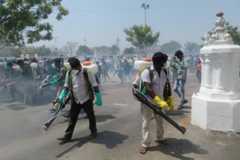

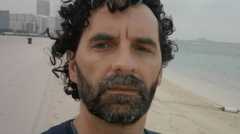
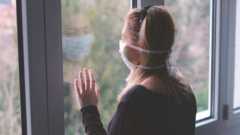
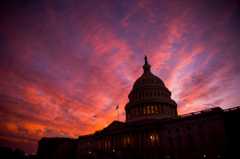
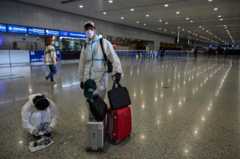
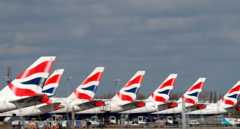

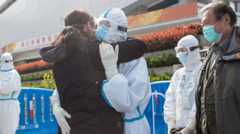
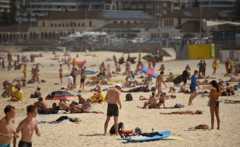

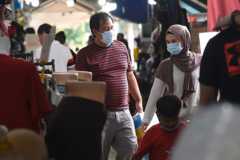


No comments:
Post a Comment